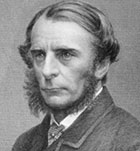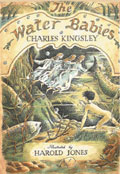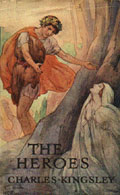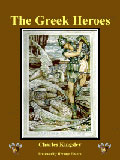 |
 |
 |
 |
A landmark author in children’s literature, Charles Kingsley was born in Devon, Great Britain, on July 12, 1819.
His most famous book for children was The Water Babies, illustrated by Noel Paton, serialized in Macmillan’s Magazine from 1862 to 1863, and finally published as a book in 1864. The story is that of Tom, a young chimney sweep in London, who is harshly used by his employer. Through a series of mishaps, he falls into a river where he is magically transformed into a water baby, learning valuable moral lessons from a salmon, a caddis fly, and other talkative creatures.
With its serious themes of the immorality of child labor and the cruel lives of the poor, Water Babies was an extremely popular book. Queen Victoria read it aloud to her children and appointed Mr. Kingsley the canon of Westminster in 1873. His books, especially those for adult readers, advocated social reform. Kingsley was intensely concerned about urban workers and farm workers; he and a group of fellow advocates formed the Christian Socialist movement.
Believing as he did that nature was an underlying expression of divine reality, he was intolerant of the New England transcendentalists and poked fun at them in Phaeton: Loose Thoughts for Loose Thinkers, in which he called Ralph Waldo Emerson “Professor Windrush” and branded Emerson’s philosophy as “Anythingarianism.”
Kingsley studied for a legal career, but entered the service of the Church of England instead, being appointed as curate in 1842 and rector two years later. In 1860, after having published many works of fiction as well as political treatises, he was made professor of Modern History at Cambridge, a post he held until 1869.
Charles Kingsley died in 1875, shortly after completing a six-month tour of the United States.
— Vicki Palmquist
